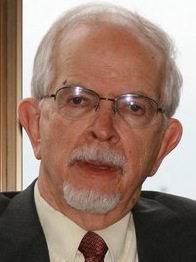In 2012 the vote was even closer than it was in 2014. It also achieved the opposite result. The New York Times story reported in 2012 that the General Assembly voted 333 to 331, with two abstentions not to divest from Hewlett Packard, Motorola and Caterpillar.
As Yogi Berra once said, the 2014 vote was "deja vu all over again," except with a different ending. Here is Laurie Goodstein, who also covered the 2014 GA, writing in the Times, July 5, 2012:
"The decision not to divest, the culmination of an eight-year process, was watched intensely by Christians, Jews and Palestinians in the United States and in the Middle East.
"It is likely to bring a sigh of relief to Jewish groups in Israel and the United States that lobbied Presbyterians against divestment, and to dismay the international movement known as B.D.S. -- Boycott, Divest and Sanctions -- which advocates using economic leverage to pressure Israel to return occupied land to the Palestinians."
In 2012, the General Assembly voted "to toss out the divestment measure and replace it with a resolution to encourage 'positive investment' in the occupied territories."
The anti-divestment playbook was very much in evidence in Detroit last week. Hanging over the commissioners as they debated and finally voted, were passionate pleas not to divest, from commissioners who were terribly afraid that relations with their Jewish friends would be damaged.
This should have been evident to those observing and voting in Detroit's Cobo Center. It was certainly evident to those of us who spent many hours on Friday watching proceedings on a public live internet feed.
One young commissioner was so emotional over the impact of the divestment vote on employees he knew personally who worked for Caterpillar, that he could hardly speak. The presiding officer had to gently tell him his time had expired.
That is the pro-Israeli playbook: Step One, tap into the personal feelings of commissioners where they "live," American workers and Jewish neighbors. Step Two: hit the internal mute button on the suffering caused by the occupation.
The internal mute button kept the occupation out of most of the GA discussion, except for the occasional testimony from commissioners who have visited the occupied areas. One man, for example, told of visiting a Palestinian shopkeeper just off the Bethlehem Square.
In their conversation, the commissioner said to the shop-keeper, "I know how you feel." The shopkeeper asked him where he lived.. The commissioner answered, "in the United States." The shopkeeper responded, "Then you don't know how I feel. I live in a prison all of the time."
There was a poignant authenticity in that exchange. Did it change votes inside Cobo Center? Only the commissioners know. But what it does do is to highlight the stark contrast between the pro-Israel playbook narrative, which keeps the discussion focused on American "feelings" and keeps it away from the sufferings of those who live under a tight military occupation.
There were many non-voting "observers" inside Cobo Hall, many of them people of all ages who belong to Jewish organizations opposed to the occupation.
The picture at top of this posting captures one of those "observers," Robert Ross, as he reacts joyfully and in amazement just as the final divestment victory vote is posted on the big screen behind the podium. The picture is from the New York Times.
The battle is joined in this moment of victory against the occupation.
It will be a long battle. Not only will it be against the pro-Israel forces deeply embedded in all church bodies, but it will be a battle against an Israeli government that genuinely hates any criticism of their control of the occupied territories.
(Note: You can view every article as one long page if you sign up as an Advocate Member, or higher).





